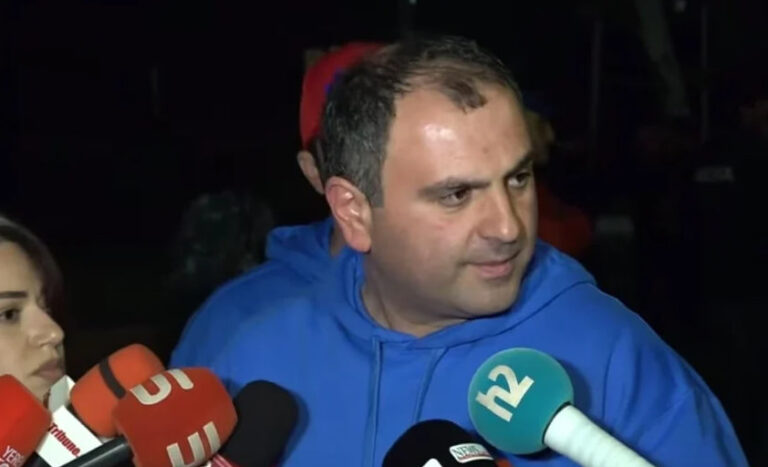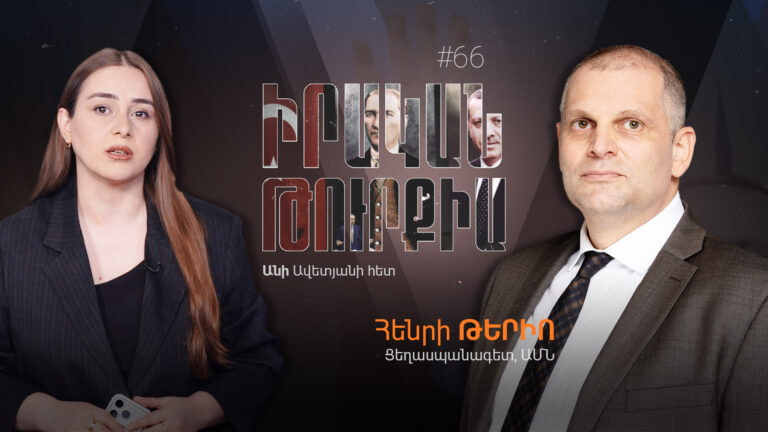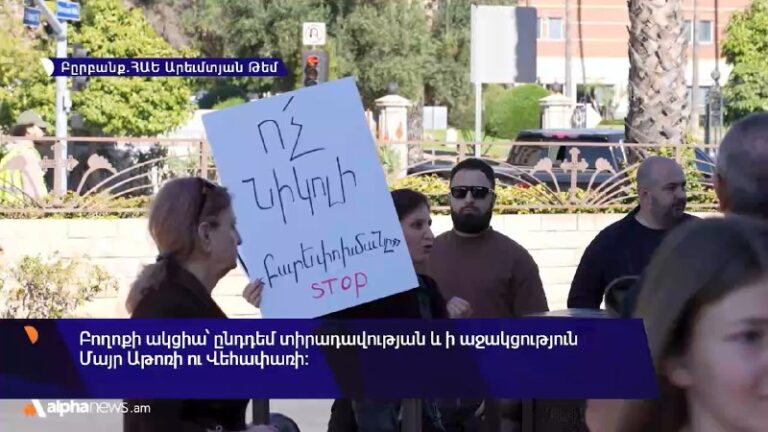‘I saw my sister in the crowd and thought that this was our last meeting’ | Artsakh forced exodus #37
December 18 2023, 10:48
After moving to Yerevan, forcibly displaced Angelina Grigoryan and her mother-in-law resumed their sweets business. Here, they participate in exhibitions where they present their products and also try to cooperate with large supermarkets.
They opened their business in Artsakh a month before the start of the 2020 war, then closed it and reopened it two years later, in December 2022. A week later, the blockade began, and despite the difficult conditions, they continued production, of course, in small quantities.
Alpha News spoke with 22-year-old Angelina, who told in detail about the war launched by Azerbaijan on September 19, the situation in Artsakh after the ceasefire and displacement from her homeland.
The war did not come as a surprise to Angelina and her family. The humanitarian catastrophe that reigned in Artsakh predetermined the future.
“A few days before the war started, I said that I didn’t want my brothers and sisters to go to school. On the day of the war, when I woke up, I said with all severity that they should go to school; the kids had already suffered a lot because of COVID, war and the blockade. The kids went to school, and I asked my older sister to pay the phone’s balance if she left the house. And then I heard a loud explosion. I realized that the war had begun.
It was a hard day, filled with worries. We had no news from my brother, who had been in service for only three months. There were no communications; we were very worried. We could hear each blast; the Azerbaijanis were already in the suburbs of Stepanakert. I left the house to call my brother, and then a shell landed a few houses away from ours. As darkness fell, the Azerbaijanis began shelling from planes, destroying buildings, houses, and cars. We could no longer stay in our house because it was dangerous, so we went to our relatives’ place,” recalls Angelina.
Out of panic and uncertainty, Angelina’s family was forced to leave Artsakh.
“After the ceasefire, when we decided to return home and take some belongings, the Azerbaijanis started shelling. The sound was coming from somewhere nearby. Some of the people were heading to the airport in panic, while others, who had neither a car nor gasoline, were rooted to the spot. In this crowd, I saw my married sister. We ran to each other. I even thought that I would never see her again and that this was our last meeting. This picture still does not leave my memory. Then there was a blast at a gas station in Haykazov. We had to leave Artsakh; we thought that we would die in the winter since we did not have anything left.
There were rumors that the Azerbaijani flag would be hung in front of the presidential residence. It was unbelievable that the Azerbaijanis could plant their flag before our eyes. There were even reports that those who did not leave within five days would live under Azerbaijani control. We also left Artsakh because we didn’t want our children to live like this. Maybe we could have stayed, but without children,” says Angelina.
On September 27, Angelina left Stepanakert. She brought with her two of her cats and a dog, which she said she couldn’t live without. About two days later, she arrived in Armenia.
Angelina’s thoughts are all about Artsakh. She misses her place of birth, everything connected with Artsakh, and cherishes the hope that one day she will return, but only if Artsakh is Armenian.








